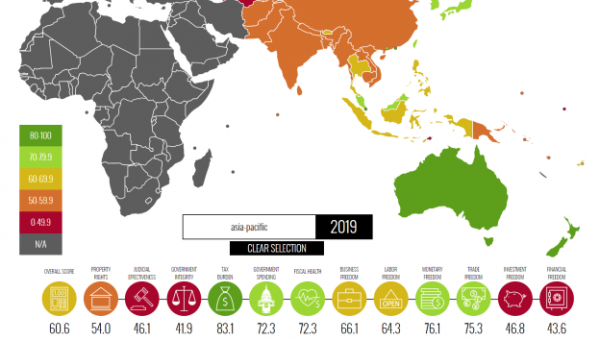SINGAPORE, 8 January 2020: Asian countries have firmly established their lead on the Henley Passport Index, the original ranking of all the world’s passports according to the number of destinations their holders can access without a prior visa.
For the third consecutive year, Japan has secured the top spot on the index — which is based on exclusive data from the International Air Transport Association (IATA) — with a visa-free/visa-on-arrival score of 191.

Singapore meanwhile drops to second place with a score of 190, while South Korea drops further down a rank to third place alongside Germany (despite gaining one score point), giving their passport holders visa-free/visa-on-arrival access to 189 destinations worldwide.
Japan’s passport managed to pull ahead of Singapore as it received a visa on arrival access to Saudi Arabia, which Singapore did not.
The US and the UK continue their downward trajectory on the index’s rankings. While both countries remain in the top 10, their shared 8th place position is a significant decline from the number one spot they jointly held in 2015.
Elsewhere in the top 10, Finland and Italy share 4th place, with a score of 188, while Denmark, Luxembourg, and Spain together hold 5th place, with a score of 187.
The index’s historic success story remains the steady ascent of the UAE, which has climbed a remarkable 47 places over the past 10 years and now sits in 18th place, with a visa-free/visa-on-arrival score of 171.
On the other end of the travel freedom spectrum, Afghanistan remains at the bottom of the index, with its nationals only able to visit a mere 26 destinations visa-free.
Henley & Partners managing partner and head of Southeast Asia Dominic Volek says the latest ranking is a window into a rapidly changing world.
“The benefits of open-door policies and mutually beneficial trade agreements can no longer be denied. Based on our ongoing research, countries that embrace this new reality of global mobility are thriving, with their citizens enjoying ever-increasing passport power and travel freedom, as well as the array of benefits that come with it.”
And these benefits are extensive. Using historical data from the Henley Passport Index, political science researchers Uğur Altundal of Syracuse University, and Ömer Zarpli from the University of Pittsburgh, have found that there is a strong positive correlation between travel freedom and other kinds of liberties – from the economic to the political, and even individual or human freedoms.
Altundal and Zarpli observe that “there’s a distinct correlation between visa freedom and investment freedom. Similar to trade freedom, countries that rank highly in investment freedom generally have stronger passports.
European states such as Austria, Malta, and Switzerland clearly show that countries with a business-friendly environment tend to score more when it comes to passport power. Likewise, by using the Human Freedom Index.”
One especially striking example of the positive correlation is Singapore, which ranks highest in nearly all economic indicators and holds the second spot on the Henley Passport Index.
Singapore’s scores on the economic indicators are far above the average for the Asia Pacific. And unsurprisingly while the region scored particularly low on indicators such as judicial effectiveness and government integrity, Singapore had near-perfect scores.







